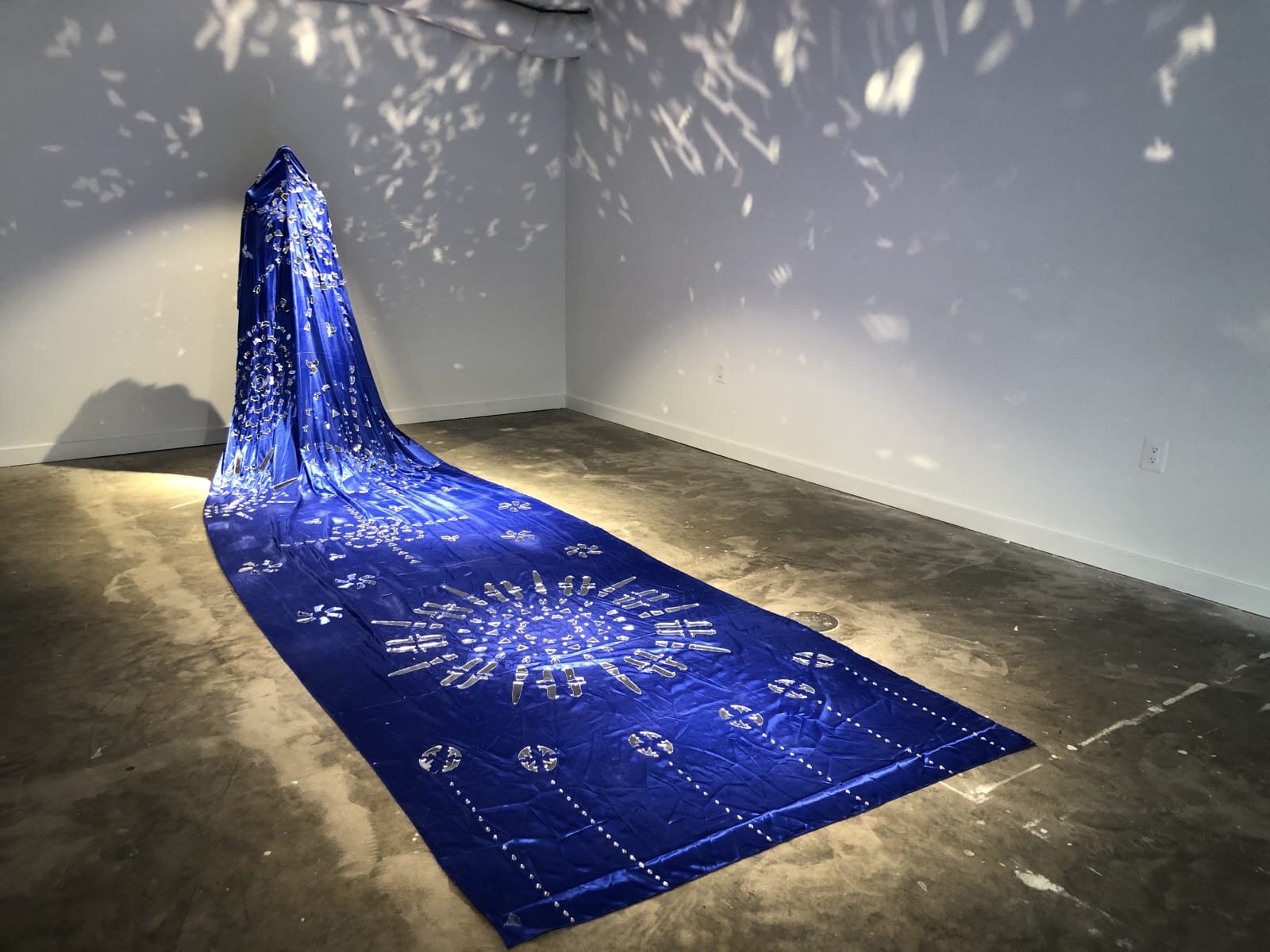About Astral Sea
About Astral Sea
The Astral Sea series is an extension of Tsedaye Makonnen’s work on transhistorical forced migration of Black communities across the globe. This series derives from Tsedaye's light sculptures, that consists of a large-scale installation made up of light towers that are described as obelisks (a node to Ethiopia's Axum created during the 4th-century CE), monuments and totems. Within each tower are lightboxes stacked on top of each other, each lightbox is named after a self-identifying Black woman or girl who has died from state-sanctioned violence in the US or while migrating to Europe from East Africa across the Mediterranean (with the exception of the matriarchal foundations of each light tower, which are named after Black women elders who have transitioned).
The Astral Sea textile compositions are adorned with hundreds of laser-cut mirror pieces obtained from her light sculpture series. Tsedaye describes these reflective pieces as “the negative space of the sculptures” found in Ethiopian Coptic crosses, ancient/present/future African Universal symbols encoded with protection & healing & other messages. The blue and black fabrics represent water, and the mirrored patterns represent bodies that have drowned at sea while symbolizing protection, healing and memorialization. Wearing it in performance spiritually activates the work, embodies & evokes the women and honours the many lives lost while crossing the Atlantic Ocean and the Mediterranean Sea.
Astral Sea has been used in several performances including in a performance responding to Christoph Buchel’s Barca Nostra put on display at the 2019 Venice Biennale, a boat in which up to 1200 migrants died in the Mediterranean off the coast of Italy. Her performance was to protest the Biennale and Buchel for displaying Black death. For Park Avenue Armory's 100 Years | 100 Women, Tsedaye created Astral Sea II and activated the textile sculpture through a performance collaboration with musician Cecily Alexa, who sang Hope from her Pisces album, while wearing a white garment adorned by Tsedaye's mirrored pieces. The performance takes place during COVID and BLM protests in Washington, D.C. at the Mall, in between the Capitol building and Monument, reflecting on the 19th Amendment, intersectional feminism, the U.S.-Mexican border and the Black womxn who have been at the frontlines of major societal shifts, movements, revolutions in this country and internationally, yet we have not been recognized as the Visionaries.
